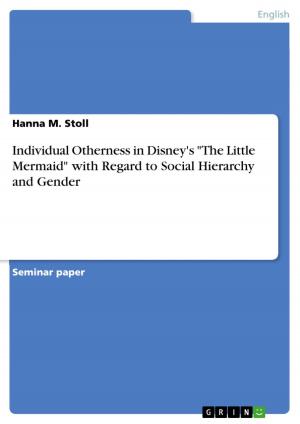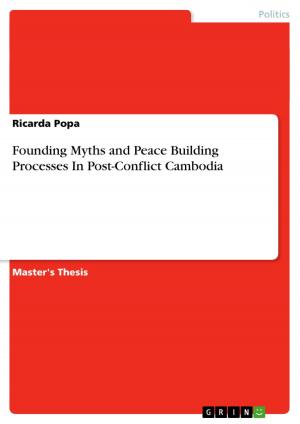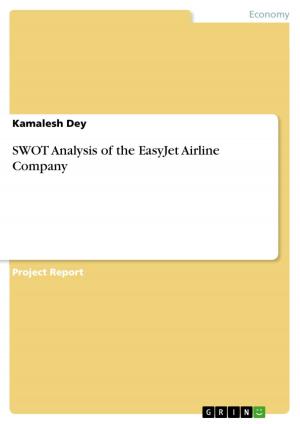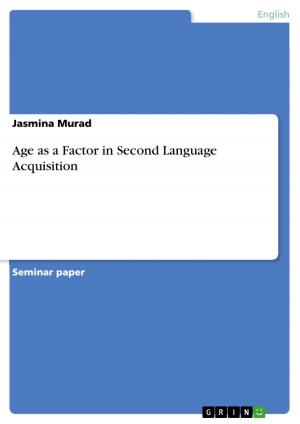Aspects of citizenship
Essays on seven authors regarding problems of group membership and xenophobia in Germany
Nonfiction, Social & Cultural Studies, Social Science, Cultural Studies, Ethnic Studies| Author: | Kalle Hübner | ISBN: | 9783638894869 |
| Publisher: | GRIN Publishing | Publication: | January 17, 2008 |
| Imprint: | GRIN Publishing | Language: | English |
| Author: | Kalle Hübner |
| ISBN: | 9783638894869 |
| Publisher: | GRIN Publishing |
| Publication: | January 17, 2008 |
| Imprint: | GRIN Publishing |
| Language: | English |
Literature Review from the year 2007 in the subject Sociology - Culture, Technology, Peoples / Nations, University of Leipzig (Institut für Politikwissenschaft), 9 entries in the bibliography, language: English, abstract: Given its historically conditioned meaning, the institution of citizenship remains an incompletely theorized contract between state and its subject. Though highly formalized, citizenship responds to (micro-) changes such as shrinking welfare state, globalization, human rights regime, transnational identities, digitalization etc. without sacrificing its formal status. The author emphasizes the lengthening distance between citizen and state as a process shaped by such changes. She examines the institution of citizenship in context of today's transformation dynamics in the law, in discursive practices and political subjectivities; whereas particularly emphasis is put on global cities as most evolved type of sites for transformations and larger systemic changes. To meet the complexity of this institution, her first steps in the process of examination is the debordering and deconstruction of citizenship: Referring to Bosniak four forms of transnationalized citizenship can be found, such as European identity through EUwide citizenship, transnational civil society arising out of cross-border affiliations, transnational social/political communities through transborder migration etc., which constitute new forms of citizenship identity across borders and showing up its incompleteness at the same time. Regarding the complexity of citizens as rightsbearing subjects, Sassen gives the proposition that citizenship is partly produced by the practices of the excluded, which gives rights to nonformalized actors and issues; even more as the national state itself contributed with expanding formal inclusions. Regarding the individual citizens, (formal) equality is seen as central to a modern institution of citizenship, though groups still face various exclusions from full participation / membership rights although bearing legal citizenship, as such rights are often conditioned by the position of different groups within the nation state.
Literature Review from the year 2007 in the subject Sociology - Culture, Technology, Peoples / Nations, University of Leipzig (Institut für Politikwissenschaft), 9 entries in the bibliography, language: English, abstract: Given its historically conditioned meaning, the institution of citizenship remains an incompletely theorized contract between state and its subject. Though highly formalized, citizenship responds to (micro-) changes such as shrinking welfare state, globalization, human rights regime, transnational identities, digitalization etc. without sacrificing its formal status. The author emphasizes the lengthening distance between citizen and state as a process shaped by such changes. She examines the institution of citizenship in context of today's transformation dynamics in the law, in discursive practices and political subjectivities; whereas particularly emphasis is put on global cities as most evolved type of sites for transformations and larger systemic changes. To meet the complexity of this institution, her first steps in the process of examination is the debordering and deconstruction of citizenship: Referring to Bosniak four forms of transnationalized citizenship can be found, such as European identity through EUwide citizenship, transnational civil society arising out of cross-border affiliations, transnational social/political communities through transborder migration etc., which constitute new forms of citizenship identity across borders and showing up its incompleteness at the same time. Regarding the complexity of citizens as rightsbearing subjects, Sassen gives the proposition that citizenship is partly produced by the practices of the excluded, which gives rights to nonformalized actors and issues; even more as the national state itself contributed with expanding formal inclusions. Regarding the individual citizens, (formal) equality is seen as central to a modern institution of citizenship, though groups still face various exclusions from full participation / membership rights although bearing legal citizenship, as such rights are often conditioned by the position of different groups within the nation state.















